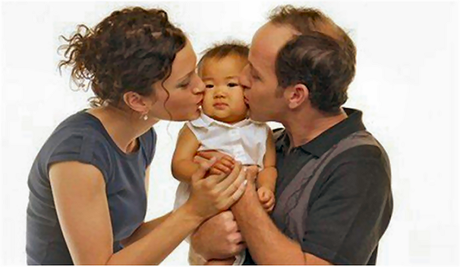When a couple realizes that they are not able to have children for biological reasons, the effects can be devastating.
Many couples are even willing to have surgery in order to enhance their chances of having a child of their own.
Unfortunately, surgeries and methods of having a biological child like in vitro fertilization do not always work.
Many of those couples begin to think about adopting a child so that they can build the family they’ve always wanted to have.

Emotional Effects of Infertility
Many women dream of the day that they will have a child for many years.
For many women, a diagnosis of infertility can cause feelings of inferiority and extreme depression.
While men may not dream of having children as much as many women, the desire to have children is one that many men begin to feel in their 20s and as they mature.
Men that are unable to have children often feel that they are unable to provide a family for themselves and their partner, and may experience feelings of inadequacy.
Couples unable to have children may have the desire to do so, can also experience relationship problems.
Many couples that experience trouble having children only to find out that they cannot because of physical problems often experience anxiety-related sexual problems and other conflicts within the relationship.
The inability to have children can also affect friendships, since many people who are actively looking to have children have friends that are able to have biological children.
This can put a strain on a friendship and make an infertile person feel worse about their own situation.
Surrogacy
For many parents, surrogacy is an option if they cannot have biological children of their own.
Surrogacy means that a couple works with a woman or couple who is pregnant or is willing to become pregnant so that they can essentially adopt the child.
In some cases, the father’s DNA is used to have the child, but most surrogates are already pregnant before a contract is entered into with the adopting parents.
Surrogacy is an expensive option for most couples, and the costs are similar to those of having your own child, though they can be even higher.
Typically, parents that are going to adopt the child from a surrogate will pay for all medical bills and for some living expenses like food and housing, especially in the last few months of the pregnancy when the mother may not be able to work in order to ensure the baby’s health.
Adoption

Couples that are unable to have children because of biological problems that are not interested in surrogacy often turn to adoption.
There are millions of children in the world that need adoption, and many prospective parents that cannot have children of their own can still provide a loving, nurturing environment for a child.
Who Can Adopt?
Different states have different requirements for parents looking to adopt. Typically, parents are in good health, are financially stable and do not have a criminal background are able to adopt with relative ease.
The adoption process can be long, but many of the hoops you have to jump through are put in place to make sure that children are not sent to unfit homes or placed with unfit parents. (Need help getting through the Process? Get theAdoptionApp!)
Adopting a Child in Foster Care
Adoption a child through a state-run foster care organization is the most common method of adoption.
In many cases, parents simply find that it makes sense to adopt a child from a foster home in their area instead of traveling out of the state or country.
Adopting Through a Private Agency
Some parents choose to adopt their child through a private agency that fosters children.
While this method isn’t too much different than adopting through a state-run foster care organization, the screening process may be slightly different, though not always more rigorous.
The Effects of Adopting a Child
Many couples that choose to adopt a child breathe a major sigh of relief once they make the decision to adopt and begin talking with a state-run foster care organization or a private agency about actually bringing a child into their home.
The most common fear parents have when adopting a child is that they may not feel like their child is their own.
While you do need to decide if adoption is right for you, most parents will begin to realize that they want a child, and will take care of an adopted child like their own flesh and blood as soon as they begin the adoption process.
Take some time to weigh whether or not adoption is right for you before making a decision.
About the Author
Marcela De Vivo works for Skintrium, writes freelance, and is grateful mother of 3, in the Los Angeles Area. Her articles focus on health, well being, and family.

